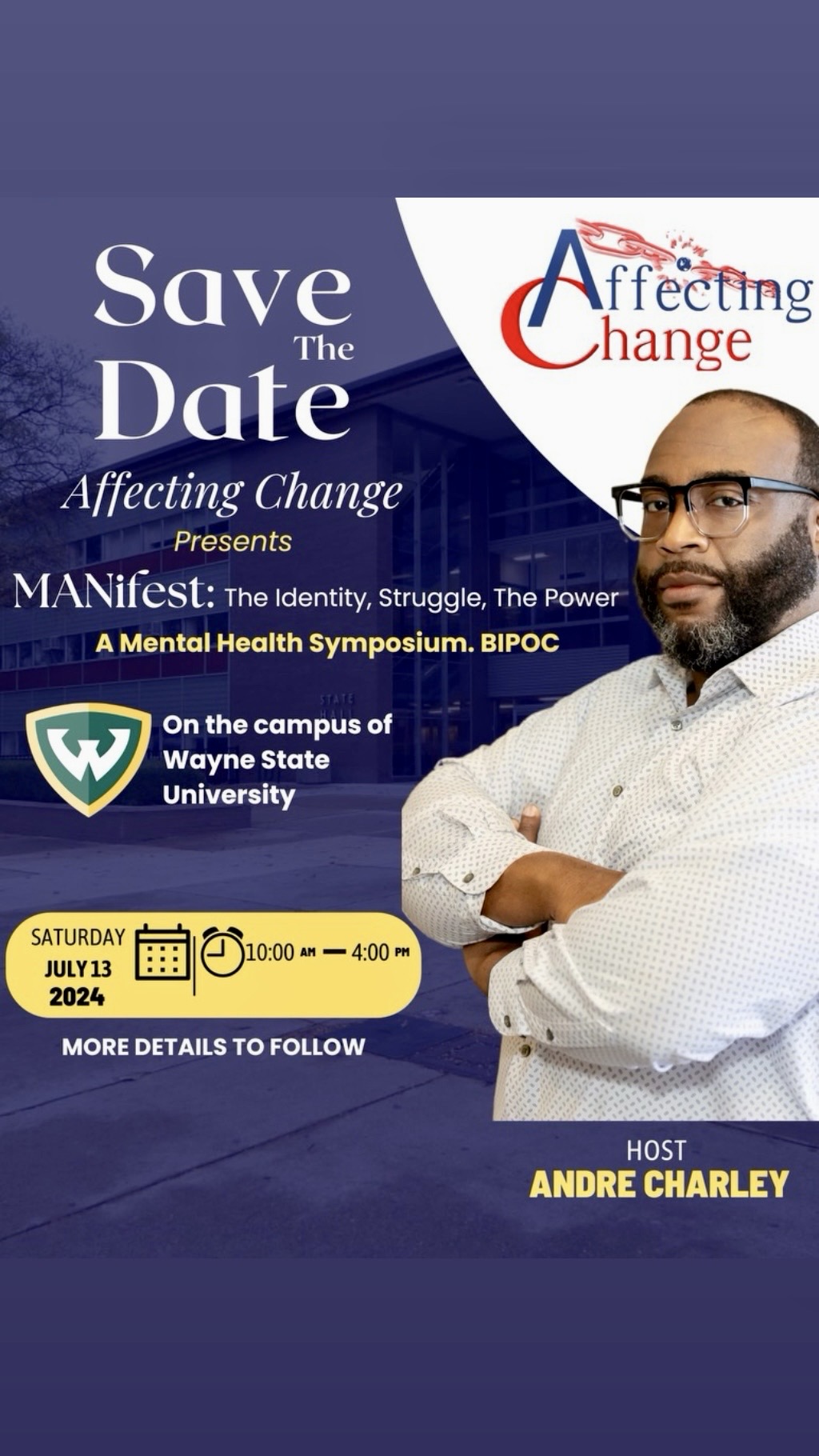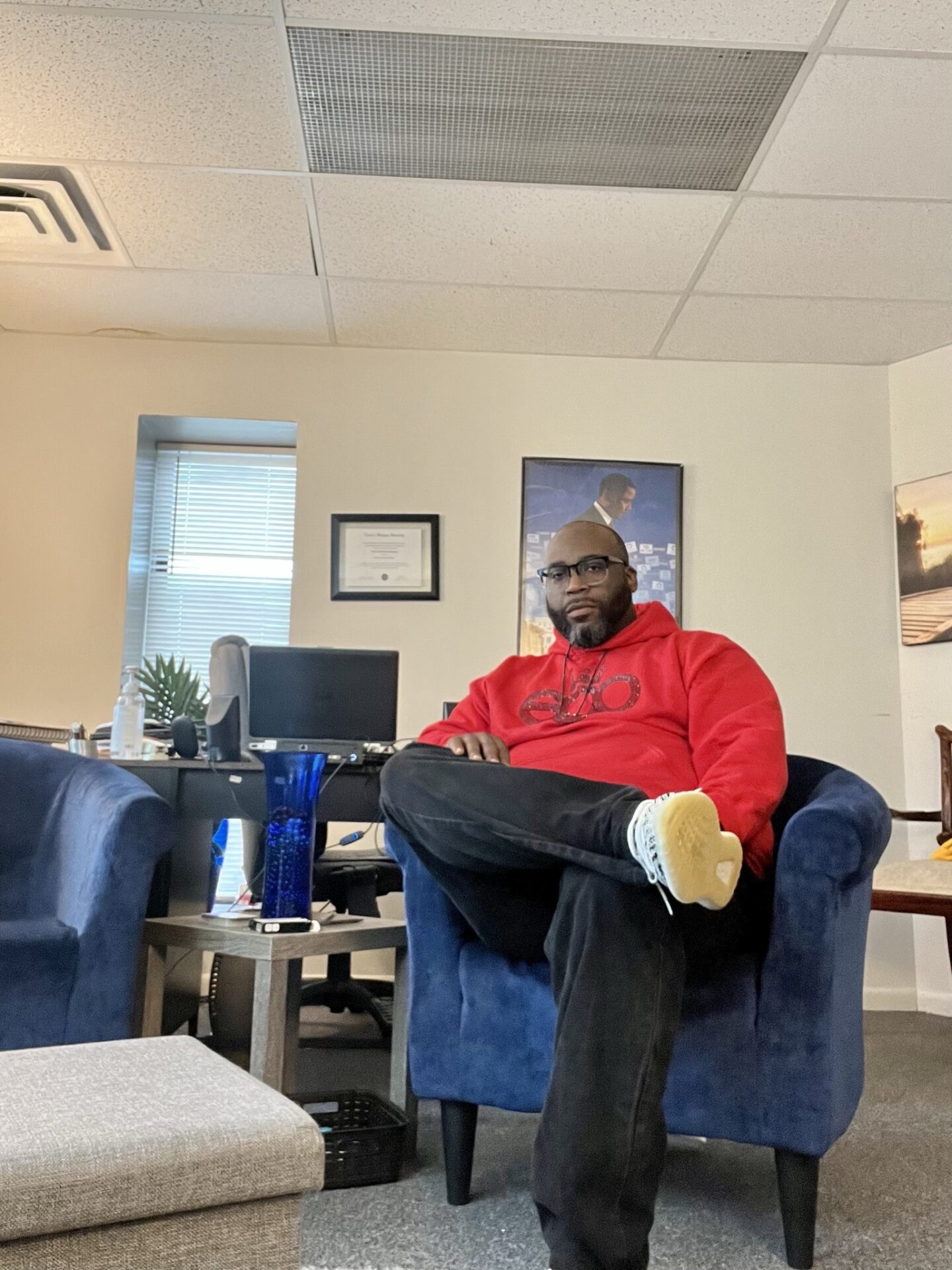Andre Charley, the visionary behind Affecting Change, shines as a beacon of hope within urban communities. His mission, ignited by a vision from his college years, drives him to eradicate the stigma surrounding mental health in Black and Brown populations. As a change agent, Charley is dedicated to offering counseling services and therapeutic support, uplifting individuals and families alike. In an exclusive interview, Charley delves into the misconceptions obstructing access to mental health services, emphasizes the significance of community engagement, and outlines his visionary outlook for the future of mental health support.

What would you like our readers to know about Affecting Change and the work that you do?
Andre: Affecting Change was birthed out of the desire to make an impact in the children, individuals and family systems within an urban setting. The name came out of my desire to be a change agent. Affecting Change was a vision I had in college when I saw a show called 413 Hope Street. I had wanted a community center much like I saw on television. After learning what that would entail, I was led to make an impact with a private practice to support mental health in the office setting.
Affecting Change has been involved in community work and supporting local nonprofits for years. We have been providing counseling services and therapeutic support. To provide quality services to others that will enhance their lives by developing essential social, emotional, behavioral, and daily living skills in order for them to reach their full potential. We have a keen sense of knowledge and experience when it comes to working with people of color. At my practice, men of color have benefitted from services more than women of color in recent years as more men are seeking therapy. This is really just the tip of the iceberg. We have much more to go.
From your experience, what would you say are some misconceptions that prevent Black and Brown communities from obtaining mental health services.
Andre: The Black and Brown community feels like either it is a sign of weakness to seek therapy. Many of the messages I have heard over the years are that I’ll be alright, or I am a man, I just need some time to figure it all out as if going to therapy for support is a sign of failure.
For some, it is a thought that someone will be in your business. You cannot control the narrative or the privacy once it is shared. Others tend to believe that you need to have a debilitating condition or mental illness in order to get support.
In addition to that, there is a school of thought that if you believe in God you do not need therapy. Some of the believers in Christian Church are against therapy because they feel it is a direct contradiction to having faith in God. The two are not mutually exclusive. You can have both and receive a well balanced outlook in life.
A core misconception is that you cannot trust mental health professions based on the mistreatment of Black and Brown people in the history of the United States. This stems from slavery, Jim Crow laws, Tuskegee Experiment, to present day events like police brutality. The whole Black Lives Matters movement which was turned into negativity and violence due to the misunderstanding and lack of compassion toward Black and Brown faces. Furthermore, how the incarcerated population is mistreated overall but especially during the pandemic. The handling of the Black and Brown population with COVID-19 was inhumane in the prison system and in the “free-world.” The laws to protect humans are not interpreted the same when it comes to the Black and Brown community.
Why is it important for Black and Brown communities to participate in ending the stigmas surrounding mental health?
Andre: We are hurting. The Black and Brown community are suffering in silence and those living in this kind of pain are making their loved ones become casualties of war so to speak. As a result, when one person in the family system is suffering, the whole family is negatively impacted. They are not able to flourish and/or function as they should because of the behaviors that are exhibited by the unhealthy family member. We have a voice and generations that are following us who need to have better mental health support. We need people who are known in the community to continue to normalize mental health support. If big name celebrities, actors, and athletes speak on the need for mental health support or how it positively impacted them or their loved ones, we will then turn the needle. I must give credit because we have some people of color who are being impactful advocates. Taraji P.Henson, Charlamagne Tha God, Janet Jackson, Jennifer Lewis, and Big Sean, to name a few are taking a stand for mental health and raising awareness. I have been around the country and witnessed various mental health conferences specifically designed for men of color so this is a paradigm that we need to continue pushing.
What is it about your work that has given you the most fulfillment?
Andre: The fact that I have been gifted by God to reach what has been labeled by others some of the toughest children and adults is extremely fulfilling. I am blessed to do the work I do. It is only through my faith that some days I have the strength to continue. I am fulfilled when I go home and understand that I made an impact in someone’s life. It is an ongoing reward. I challenge myself to lend everything I have in sessions, groups, meetings, conversations, etc. so that everyone knows I was in the room. And, not only just in the room but speaking on the behalf of the disenfranchised, advocating for another opportunity for someone, or simply working with a client in my office to see ways and strategies they can use to make a positive change in their own life.
What advice would you have for Black men who are afraid or less open to seek mental health support?
Andre: Allow yourself to take the first step. We will partner with you and guide through the process. Once you allow yourself to go, you can gauge how you feel. It is probably extremely different than you would imagine in your mind. We have seen television and drama series with therapists but some of that is not realistic or ideal. This is a support system designed specifically for you. This is a confidential place to just kick it about your life, your story, and how you may view things without judgement. Men do not get a place for them much but this is not just for those with serious mental illnesses. Everyone can benefit from mental health support. It will look however you want it to look once you sit down in the office or have your virtual appointment. I prefer in-person because men benefit from an outlet that looks different than their home or car. It’s their moment without interruption; a safe haven.
What do you envision for the future of the mental health industry?
Andre: I envision a country where mental health support has fiscal backing. An ideal country where it is s talked about like we discuss sporting and the next community events. I want us to live in a place where it is encouraged to have mental health days, support for families, and time away when you need to reset whether it is work or school. I also envision a place where the workforce, human resource departments, and company’s collective bargaining agreements (union contracts) have sustainable health insurance and mental health support without people having to make major life decisions on which health care plan they can choose. Some deductibles and copays are extremely high where an individual would rather not seek assistance than pay for a service they aren’t sure they even need. I have seen deductibles as high as $7000. So, before insurance coverage starts you must pay $7000 out of pocket or through some sort of health savings plan before insurance will pay. The what he would call high deductible plan was chosen because many people can’t afford the $600 or so per month it would take to have a lower deductible plan like $500-$1500.

What else would you like for our readers to know at this time?
Andre: I want others to know that the person in the family or the person on the corner needs compassion and for us to be considerate. You do not have to put yourself in harm’s way but you do not have to be mean and/or disrespectful to those who look or operate differently than us. We also have to realize how we show up in our friend group, work, or in our families can have a positive or negative impact. Mental illness does not have a particular look on someone. Mental illness can look like a lawyer, school teacher, counselor, therapist, mechanic, grocery store attendant, etc. So, choose wisely what you bring into your circle. I will share with a couple of quotes that are guiding principles:
“You are the change you want to see in this world” — Mahatma Gandhi
“Be kinder than necessary because everyone you meet is fighting some kind of battle” J.M. Barrie
In closing, I encourage everyone to attend my upcoming mental health symposium designed for males of color. It’s open to women as well. MANifest: The Identity, Struggle, The Power.
Keep up to date online:
Website: https://affecting-change.com/
YouTube: https://www.youtube.com/@AffectingChangeCharley
Instagram: @affecting.change.charley
